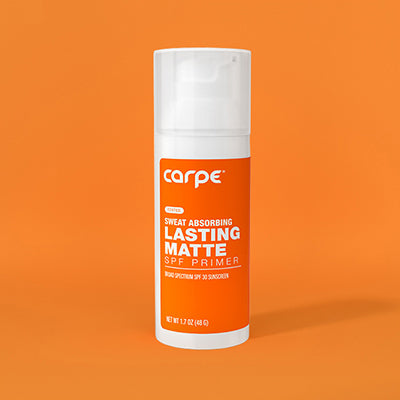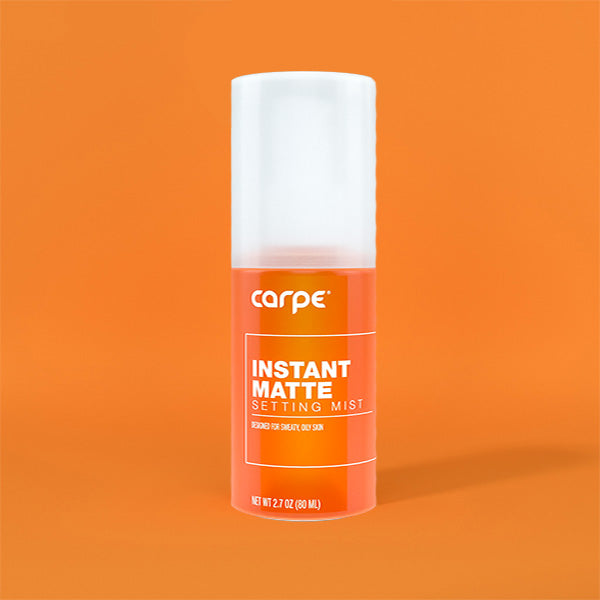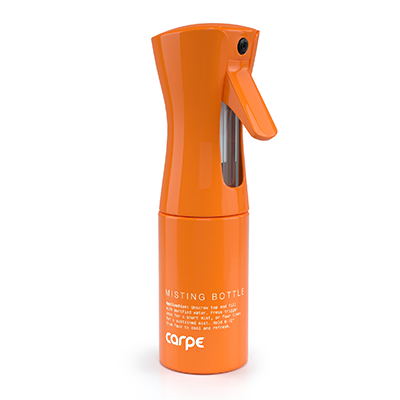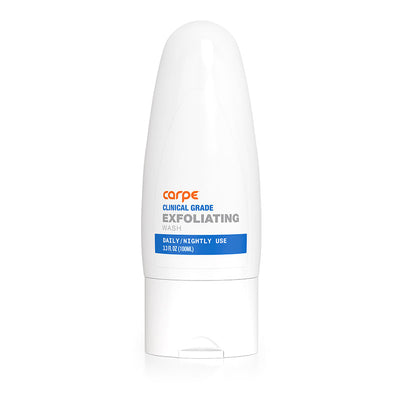Stress Sweat
Everyone experiences increased sweating when exposed to a stressful trigger at some point or another, so this is an important topic to understand. The definition of stress sweat is: increased sweating caused by a stressful psychological stimuli. This is different than a person experiencing increased sweating due to heat or intense exercise, as it involves only a psychological component as the sweat inducing trigger. Normally, sweat works with body temperature in a way that helps the body keep its internal temperature stable even in hot conditions, but stress can trigger the same type of physical reaction as heat. For people with hyperhidrosis, stress can be one of the primary culprits that cause their excessive sweating. There are specific reasons that cause the body to produce sweat during certain psychologically stressful situations and it is one of the reasons why humans sweat. However, for a person with hyperhidrosis this process can be extremely excessive and embarrassing on top of an already psychologically tough situation.[3]
Symptoms of Sweat Stress
Hyperhidrosis is not bad for someone's health, but the symptoms that arise from the stress it causes can be. Stress sweat can occur on specific areas of the body and, at times, it can be distressing. Precipitating an episode of stress induced sweat a person will typically feel nervousness, excitement, or anxiety. The following symptoms may then occur:
- Craniofacial sweating (beads of sweat on the forehead)
- Palmar sweating
- Plantar sweating
- Axillary sweating
- Groin sweating
- All over body sweating (may occur but it is usually localized)
- Offensive body odor
Not everyone will experience all of these symptoms of stress sweat, and many may only experience one or two. Stress sweating usually effects localized parts of the body but can occur all over, this varies between individuals. Some people experience clammy hands and feet when dealing with stress sweating, while others soak through there clothes. It does often involve apocrine sweat glands, which are most densely located in the axillary and groin regions. Unfortunately, apocrine sweat glands are responsible for the odor that is sometimes a particular symptoms of stress sweat.[1] This is because of what the sweat is made of, bacteria readily break down the type of sweat produced by apocrine glands and this creates a foul odor. There are two types of sweat glands stress can activate, eccrine, which are located all over the body, and apocrine, which are described above.[4]
The Physiological Reasons Stress Sweat Happens
Stress sweat occurs in both healthy individuals and those with hyperhidrosis. It is most likely to occur on the palms, soles, face and armpits.[1] In a typical individual, sweat happens as a result of a psychological stressor because it activates a part of the autonomic nervous system called the sympathetic nervous system, which in turn activates eccrine (sweat) glands through specific neurotransmitters. The autonomic nervous system is responsible for maintaining homeostasis and is made of up two parts, the sympathetic nervous system which excites the body, and the parasympathetic nervous system which calms it down. In people with hyperhidrosis, the sympathetic nervous system is thought to be overactive, which leads to overactive sweat glands and an overabundance of sweat. During a situation that would induce sweat stress in anyone, a person with hyperhidrosis will experience a much greater volume of sweat than a typical individual.[2]
While the exact cause of hyperhidrosis is currently unknown, there are some ideas about what may lead to stress sweating. Interestingly, it can be demonstrated that the sympathetic nervous system is related to the excessive sweat created in people with hyperhidrosis. Sometimes patients with hyperhidrosis will have a surgery called endoscopic thoracic sympathectomy (ETS) done as a treatment for sweaty hands. ETS is a surgery which destroys the nerves that activate the sweat glands in the palms. Once this is done, people with hyperhidrosis will no longer experience the effects of stress sweat in that area. However, they still experience the change in blood flow that occurs from temperature changes. This means that there is a specific nervous system response that activates sweat glands that does not affect surrounding blood vessels or skin tissues.[2] All of this indicates that a psychological response can cause a host of physiological processes to occur which increases sweat in normal individuals, and which may be a causative factor in the overproduction of sweat in those with hyperhidrosis. This is also the reason that hyperhidrosis and anxiety are so closely related.
Situations that Cause Stress Sweat
Any situation that can trigger a nervous or excited feeling has the ability to elicit stress sweat. However, there are common situations that are highly associated with potential increased sweating, including:
- Public speaking and its effect on hyperhidrosis
- Intimate relationships (especially in the beginning)
- Performing (playing sports with hyperhidrosis, debating, acting etc..)
- Sudden panic moments (forgetting an assignment, realizing you missed an important deadline etc…)
- Intense social engagement
These are all things that everyone will face at some point, and struggling with the fear of sweat stress can make that even harder for those with hyperhidrosis.[4] It is also important to note that hyperhidrosis can cause anxiety and that this can cause a host of other related issues.
Treatments for Stress Sweat
There are many potential treatments for stress sweat depending on the severity of the case. For example, if stress sweat is severe and usually caused by social or performance anxiety the use of the oral medication for hyperhidrosis called propranolol, a type of beta blocker, might be appropriate to use.[4] If sweat stress is less severe it may make more sense to take a more conservative approach to managing your sweat. These techniques can include the use of stronger antiperspirant, choosing clothes wisely, deep breathing techniques and finding methods to generally reduce your stress. There are anxiety reduction methods that can lessen excessive sweating, especially in those who are dealing with stress sweating. If symptoms are pervasive and persistent there are ways to manage your hyperhidrosis sweat with a doctor through the use of iontophoresis, botox injections, local permanent procedures, surgeries and other resources that are available.[4]
Due to the fact that stress sweat often involves the apocrine glands of the armpit and groin it can be particularly prevalent for it to produce a bad odor. If this is the case, there are ways to stop body odor. It would prudent to use strong antiperspirant, shower often, change clothes after sweaty situations and see a doctor if the problem is especially troubling. There are antiperspirants for the face and groin that are made for areas with sensitive skin.
Sweat stress can stink, but it’s important that people don’t let it’s effects stop them from doing the things they want, even if they are stressful.
Sources
- Harker, M. (2013). Psychological Sweating: A Systematic Review Focused on Aetiology and Cutaneous Response. . Skin Pharmacology and Physiology, 26(2), 92-100. doi:10.1159/000346930
- Huddle, J. R. (2014). Hyperhidrosis: Causes, Treatment Options and Outcomes. New York, NY: Nova Science.
- Macefield, V. G. (2009). Developments in autonomic research: A review of the latest literature. Clinical Autonomic Research, 19(3), 133-136. doi:10.1007/s10286-009-0016-3
- Pariser, D. M. (2014). Hyperhidrosis (4th ed., Vol. 32). Philadelphia, PA: Elsevier.
Diseases and Conditions that Cause Secondary Hyperhidrosis
There are two types main types of hyperhidrosis, primary and secondary, of the two only 7% of the people suffering from hyperhidrosis have the secondary type. About 3% of the population has hyperhidrosis, so this is a relatively small population. Secondary generalized hyperhidrosis is a condition in which a person has excessive sweating due to an underlying issue. It is important to understand the basics of diaphoresis when discussing secondary hyperhidrosis. Diaphoresis is the term doctors use to describe unexplained excessive sweating and is often used in conjunction with a diagnosis of secondary hyperhidrosis, they can be used interchangeably to describe the condition. While the hyperhidrosis is not bad for a person's health by itself, the underlying causes can be.[1]
Secondary hyperhidrosis is usually categorized by generalized sweating that occurs all over the body and is often worse at night. The onset of secondary hyperhidrosis usually occurs after the age of 25 and it has a specific cause. These causes can be broken down into three main groups: drug induced, physiologic or pathologic. The most common cause of secondary hyperhidrosis are medicines and the side effects they cause. However, there are a variety of physiologic states and diseases that can cause secondary hyperhidrosis so it is important that patients with this type of hyperhidrosis manage it with a doctor.[1]
Physiologic States that Cause Hyperhidrosis
When discussing a physiologic cause of excessive sweating this describes the condition or state of the body or bodily functions that naturally occur and cause the symptoms of hyperhidrosis.[2] This means the underlying cause of hyperhidrosis is not a disease but it is caused by a natural change in the body that results in unwanted excessive sweating. One of the best examples of this is pregnancy - it is a natural state of change in the body that causes some people to produce too much sweat.
Women are often subjected to secondary hyperhidrosis resulting from normal hormonal changes they experience over a lifetime. The two main culprits are pregnancy and menopause. During pregnancy several factors can cause a woman to sweat more than normal including increased blood volume, hormonal changes and extra weight. This all places more stress on the body and causes pregnant women to feel hot which induces sweating. This is a normal occurrence and should not lead to concern. Menopause begins at a median age of 51 and up to 80% of women experience sweating and flushing by the time the process has ended. Many women going through menopause experience hot flashes which cause sudden, intense sweats and night sweating as a result of changing hormone levels. There are blood tests to check oestradiol and gonadotropins, types of hormones, to ensure a woman is in menopause. It is recommended to do this to definitively determine that a woman is in menopause and make sure her hyperhidrosis is not being caused by another unrecognized condition.[3] These types of hormonal changes eventually will resolve on their own but can be managed with medication if needed, especially in the case of a menopausal woman.
Other physiological states that can induce hyperhidrosis are obesity, excessive heat and fever. While obesity is not an optimal state for body function, it is a naturally occurring phenomenon. Excess weight can cause hormonal imbalances that impact thermoregulation and can cause a person to overheat more easily leading to excessive sweating. There is a reason why people sweat when they are sick with an infection or virus, this is known as fever. Fever is included in this section because it is a natural state the body induces for various reasons, most commonly to fight infection. It is important to note that a fever itself can be a cause of hyperhidrosis and not just the issue causing the fever. It causes excessive sweating as the body heats its core temperature and this initiates activates the sweat glands.[1][3]
Diseases that Cause Secondary Hyperhidrosis
There are many diseases and pathologic conditions that have the potential to cause secondary hyperhidrosis. Included is a list of the most common diseases that can cause excessive sweating, broken down by which body system they affect:
Endocrine Disorders
These are diseases and conditions that impact hormones and structures that control and secrete them. Here are the most common endocrine conditions that can cause hyperhidrosis:
- Hyperthyroidism: This is over-activation of the thyroid gland and can be a common cause of sweating.
- Diabetes: This is a very common cause of disease-related hyperhidrosis. It is a condition in which patients bodie’s cannot appropriately deal with insulin.
- carcinoid syndrome: A syndrome caused by certain kinds of tumors.
- Hyperpituitarism: Over production of hormones by the pituitary gland.
- Pheochromocytoma: Tumor of the adrenal gland.
- Acromegaly: The body produces too much growth hormone, this can result in gigantism.
Of these conditions diabetes mellitus and hyperthyroidism are the most common.[4]
Infections
Many infections have the potential to cause hyperhidrosis as a symptom, including:
- Acute bacterial or viral infections: These can include common illnesses that regularly circulate the population or more serious infections.
- chronic infections like:
- Tuberculosis: A rare but serious bacterial infection of the lungs.
- Malaria: A parasitic infection spread by mosquito.
- Brucellosis: A bacterial infection often caused by exposure to animals or animal waste products.[4]
Neurological
A large variety of neurological issues, those that deal with the brain and spinal cord, can cause hyperhidrosis. Here is a look at the most common:
- Stroke: Caused by the brain being unable to obtain blood flow. Can be due to a brain hemorrhage or a blocked blood vessel. These a common, serious and require immediate medical attention.
- spinal cord injuries: The body can no longer regulate the nerve signals going to the brain and this can impact thermoregulation and cause sweating.
- gustatory sweating after parotidectomy
- Parkinson's disease: Degenerative condition of the brain that eventually leads to death.
- Encephalitis: Swelling of the brain.[4]
Cardiovascular Issues
Heart failure, due to any reason, can cause secondary hyperhidrosis as a symptom. Some reasons for heart failure can include but are not limited to congestive heart failure, a heart defect, endocarditis (infection of the heart) and many others.[1][4]
Cancer
There are several types of cancer that can cause hyperhidrosis to result. Lymphoma, in particular is known to do this. Depending on tumor location and individual reactions patients with other types of cancer may also experience excessive sweating.[1][4]
Other
There are several other conditions that can cause secondary hyperhidrosis like gout, arsenic intoxication, alcoholism and congenital conditions that are fairly common. This is not a comprehensive list of conditions that can cause excessive sweating.[1][4]
Due to the possible dangerous and debilitating conditions that may contribute to secondary hyperhidrosis, it is always important for a patient to manage the condition with a doctor. There are many natural and healthy reasons for why humans sweat but if excessive sweating has a sudden and intense onset it may be related to one of the conditions discussed above. Conversely, if you notice that you're body doesn't seem to sweat at all this can also be a worrisome sign. Any time you feel like your body is overproducing or underproducing sweat it is a good idea to speak to your doctor.
Sources
- Pariser, D. M. (2014). Hyperhidrosis (4th ed., Vol. 32). Philadelphia, PA: Elsevier.
- Physiologic. 2018. In Merriam-Webster.com. Retrieved August 16, 2018, from http://www.meririam-webster.com/dictionary/physiologic
- Paisly, A. N., & Buckler, H. M. (2010). Investigating secondary hyperhidrosis. BMJ : British Medical Journal (Online), 341. doi:10.1136/bmj.c4475
- Benson, R. A., Holt, P. J., & Loftus, I. M. (2013). Diagnosis and management of hyperhidrosis. BMJ : British Medical Journal (Online), 347. doi:10.1136/bmj.f6800
Hyperhidrosis and Anxiety
Hyperhidrosis and anxiety go hand in hand, one is often both the cause and result of the other. However, it needs to be understood that a mental disorder does not cause hyperhidrosis, rather anxiety produces worsened symptoms of the disease in people that already have it. Historically, hyperhidrosis was actually thought to be a psychiatric condition, but that has been proven to be untrue.[1] Anxiety is often a cause of excessive sweating in those with hyperhidrosis but it is not the only reason it occurs. It is important to understand that anxiety is a symptom of hyperhidrosis because of the uncomfortable experiences the disease produces. Hyperhidrosis is not dangerous, but the anxiety and stress that can result from it are detrimental if they are not treated.
Ways Hyperhidrosis Causes Anxiety
Hyperhidrosis has a profound impact on a patient’s quality of life. In some cases, it is a specific situation like public speaking, that will worsen hyperhidrosis symptoms, but often, daily situations produce the most anxiety for those suffering. Here are some ways in which hyperhidrosis impacts quality of life and creates anxiety for those affected:
- It creates a feeling of social stigmatization that causes sufferers to feel isolated and, therefore, anxious about social interactions. For example, a person suffering from palmar hyperhidrosis may find it anxiety-producing to shake hands because of sweaty palms.
- It can cause anxiety about intimate relationships as patients may worry that their significant other may find them unattractive or unclean.
- Worries surface in relation to personal hygiene. It creates anxiety when a person feels that they cannot stay clean or must perform daily hygiene routines constantly throughout the day.
- Self-esteem is often low in hyperhidrosis patients, which creates feelings of anxiety and inadequacy.
- Professional success and performance are often hindered by either the condition, or often, the anxiety perpetuated by the condition.
These are just some of the ways that hyperhidrosis can cause anxiety and lower the quality of life for those suffering.[2] Fortunately, there are various ways of managing sweat and certain specific treatments that have been shown to greatly reduce the anxiety produced by hyperhidrosis.
How to Deal with Anxiety Caused by Hyperhidrosis
There are several non-medical ways to manage the symptoms of both hyperhidrosis and anxiety. Often, by decreasing the stress caused by hyperhidrosis on a daily basis patients can greatly reduce psychological symptoms. In some cases, the use of relaxation techniques, like deep breathing exercises, meditation and yoga can be greatly beneficial. Anxiety reduction methods can lessen excessive sweating if practiced on a regular basis. This is because hyperhidrosis is thought to be caused by an overactive sympathetic nervous system, so calming the nervous system down also reduces sweat production. These practices do not entirely eliminate symptoms of hyperhidrosis but can help to manage the distress caused by its symptoms, which can range from uncomfortably clammy hands and feet to a person not wanting to go to social events due to fear of social embarassment. In many cases, the most effective way to decrease significant anxiety caused by hyperhidrosis is to treat the actual condition. This often means managing hyperhidrosis with a doctor. There are some at-home management options like iontophoresis and OTC topical treatments that patients can try prior to visiting a doctor if they prefer. However, these treatments may not provide enough relief for a patient suffering from both severe hyperhidrosis and anxiety.
Medical Treatment Options for Hyperhidrosis to Decrease Anxiety
Increased anxiety is especially prevalent among those who have primary focal hyperhidrosis.[2] These are people who typically begin noticing symptoms during adolescence and who often have sweating on specific areas of the body. It is especially common to find anxiety in patients who have palmar and plantar hyperhidrosis[3]. Therefore, treatment for sweaty hands and treatment for sweaty feet are particularly effective in reducing anxiety symptoms. The most effective and well-studied methods which have been shown to reduce anxiety are surgical treatments for primary focal hyperhidrosis. These procedures include botox treatments for palmar, plantar and axillary hyperhidrosis as well as a surgical procedure called endoscopic thoracic sympathectomy (ETS). Both treatments reduce sweating to specific areas of the body and thus greatly reduce the amount of anxiety for those suffering. Patients should be weary of a surgical procedure called endoscopic lumbar sympathectomy as it has been shown to have potentiall serious and detrimental side effects. Patients should also be aware that endoscopic thoracic sympathectomy surgery also carries a high risk of ceratin side effects, like compensatory sweating, that can be difficult to handle. Most doctors maintain the idea that endocopic thoracic sympathectomy is still a safe treatment, despite some of the risks.[1][1]
There is also the option to treat hyperhidrosis with oral medications, specifically anticholinergic drugs like glycopyrrolate or oxybutynin, which can reduce sweating and thus anxiety. This has more recently been shown as a treatment which can potentially reduce anxiety, although surgical treatments are more commonly associated with improvements.[2] Of course, psychiatric medications can always be used to treat anxiety if needed, but if anxiety is specifically caused by the symptoms of hyperhidrosis then it makes sense to first treat the hyperhidrosis. If a patient decides to use psychiatric medications to manage their anxiety, they should be aware that benzodiazepines, which are used to treat acute anxiety, can be habit forming and have a sedating effect.
If a patients is suffering anxiety due to hyperhidrosis, and more conservative measures have not improved symptoms, then managing hyperhidrosis with a doctor is an important, and often life-changing, next step.
How Hyperhidrosis and Anxiety Have Been Studied
There have been several studies examining the relationship between anxiety, stress and hyperhidrosis. Although there have been some mixed results concerning which areas of sweating are most stress-producing (palmar, plantar or axillary) most studies show a correlation between anxiety and hyperhidrosis. One study, used both psychological evaluations (Beck Depression Inventory and Trier Inventory of Chronic Stress) and measured stress hormone levels to see if there was a cause between stress and hyperhidrosis. The cortisol levels remained similar to the control group but the hyperhidrosis patients reported higher levels of stress and depression.[4] There are many other assessments used to determine the quality of life for those suffering from hyperhidrosis including the Dermatology Quality of Life Index, Hyperhidrosis Impact Questionnaire, Skindex and more.[2] These tools are can be used by either researchers or doctors to determine how and to what extent patients are suffering psychologically from hyperhidrosis. Due to the fact that there is a strong correlation between excessive sweating and stress, some people suffer from stress sweating, or sweating that is greatly worsened when a person is in an acutely stressful situation.
It makes sense that hyperhidrosis, stress and anxiety are so closely related as the symptoms of hyperhidrosis cause both physical, social and emotional discomfort.[2] However, there are many available solutions and ways to manage the condition so that patients feel better and experience an improved quality of life.
Sources
- Ruchinskas, R. (2007). Hyperhidrosis and Anxiety: Chicken or Egg? Dermatology, 195-196. doi:10.1159/000099581
- Pariser, D. M. (2014). Hyperhidrosis (4th ed., Vol. 32). Philadelphia, PA: Elsevier.
- Ghorpade, V. (2009). Idiopathic unilateral focal hyperhidrosis with social anxiety disorder. Indian Journal of Psychiatry, 51(3), 214-215. doi:10.4103/0019-5545.55094
- Gross, K. M., Andrea, B., Schneider, K. K., Schulz, A., & Meyer, J. (2014). Elevated Social Stress Levels and Depressive Symptoms in Primary Hyperhidrosis. PLoS One, 9(3). doi:10.1371/journal.pone.0092412
The Most Common Medications that Cause Secondary Hyperhidrosis
Secondary generalized hyperhidrosis is often a surprise, people who have otherwise been healthy adults suddenly have a significant sweating problem. This is called diaphoresis, or excessive sweating with no apparent cause. This is unlike primary focal hyperhidrosis, which often begins in adolescence and is a problem patients struggle with for the majority of their lives. A review in 2011 found that 93% of people diagnosed with hyperhidrosis struggle with the primary type - that means that only 7% of cases are comprised of secondary hyperhidrosis. However, when patients are diagnosed with secondary hyperhidrosis, it is imperative that the cause is found because it can often be a dangerous medical condition. This is because secondary hyperhidrosis can be caused by several medical conditions and diseases. Ironically though, medication side-effects are the most common cause of secondary generalized hyperhidrosis.[1] That means that most people who are diagnosed with secondary hyperhidrosis are being treated for another condition and the medication they are taking caused them to begin sweating in excess of what is considered normal. It is vital that a patient who suddenly displays hyperhidrotic symptoms starting in adulthood manage hyperhidrosis with a doctor to determine whether it is caused by a medication or another underlying medical condition.
If a patient suspects that the cause of their excessive sweating is a result of a medication then it is important to discuss this with a qualified doctor and discuss a plan of action. Below is a list of common medications that can cause secondary hyperhidrosis:
Types of Medication that Cause Secondary Hyperhidrosis
There are many types of medication that can potentially cause hyperhidrosis that treat a variety of conditions. Here is a list of medicines that can potentially cause excessive sweating:
Pain Medications:
Most of the pain medications that can cause hyperhidrosis as a side-effect are prescription drugs. However, in some instances, excessive sweating has been caused by the over-the-counter medicines Tylenol and Aleve.[1][2] Here is a list of several prescription pain medications that can cause excessive sweating:
- Opiates like: Hydrocodone/Vicodin, Morphine, Oxycodone/Roxicodone, Fentanyl/Duragesic, Ultra/Tramadol
- NSAIDs like: Toradol/Ketorolac, Celebrex, Relafen/Nabumetone
- Other pain medications: Marinol (made from cannabinoids)
Psychiatric Medications
Many psychiatric drugs can have secondary hyperhidrosis as a possible side effect. These medications include SSRIs, antipsychotics, ADHD medications and anxiolytics. Here is a list of these medications:
- Antidepressants, antipsychotics and anxiolytics: Elavil/Amitriptyline, Buspar/Buspirone, Tegretol/Carbamazepine, Celexa/Citalopram , Clozaril/Clozapine, Norpramin/Desipramine, Migranal/Ergotamine, Aricept/Donepezil, “Cymbalta/Duloxetine, Lexapro/Escitalopram, Lunesta/Eszopiclone, Prozac/Fluoxetine, Haldol/Haloperidol, Sinemet/Levodopa, Provigil/Modafinil
- ADHD medication: Adderall/Amphetamine
Hormonal Medications
Hormonal medicines, including many birth controls for women, can cause excessive sweating as a side effect. This list also includes steroids and other agents. Here is a list:
- Birth Control: Depo-provera,
- Other hormonal medications: Calcitonin/Fortical, Syntrhoid/Thyroid (for hypothyroidism), Evista/Raloxifene, Genotropin/Somatroin, Testoterone/Androgel, Antibodies/Tositumomab (cancer therapy)
- Diabetes Medications: Glucotrol/Glipizide, Insulin/Humilin, Vasopressin/Pitressin
- Common Steroid Medications: Prednisone/Orapred
Skin Medications
There are several types of skin medication used to treat a variety of conditions, some of which cause hyperhidrosis as a side effect, these include:
- Topical steroids
- Acne Medicine: Accutane/Isoltretinoin
- Numbing Medicine: Lidocaine/Carbcaine
- Other: Selsun/Selenium sulfide
Antibiotics
Antibiotics are used to treat bacterial infections, and despite being commonplace and saving lives, can cause hyperhidrosis. Here is a list of antibiotics that may do this:
- Acyclovir/Zovirax, Rocephin/Ceftriaxone, Cipro/Ciprofloxacin, Sustiva/Efavirenz, Foscavir/Foscarnet, Tequin/Gatifloxacin, Avelox/Moxifloxacin, Ketek/Telithromycin, Ribavirin/Copegus, Retrovir/AZT
The list above is not a complete list of all the medications that can cause secondary hyperhidrosis, just the most common. There are several other classes of medications that have certain drugs which can cause diaphoresis including certain cancer medications, heart and blood pressure medications, GI medications, blood and immune medications, lung medications, and genitourinary medications. The specific names of these medications was not included as they are less common, but if a patient is on a medication to treat one of these conditions and they suspect secondary hyperhidrosis they should consult a doctor.[1]
Options for Dealing with Medication-induced Hyperhidrosis
The most obvious solution for treating hyperhidrosis caused by a medication is to stop taking it. However, that is not always a viable option for certain patients. Some patients may need to continue taking the offending medication because it will be further deleterious for their health to stop taking it.[3] For example, a psychiatric patient may find it necessary to take medicine which causes hyperhidrosis in order to continue functioning. In this situation, discontinuing the causative drug is not in the best interest of the patient. This type of patient may benefit from taking another oral medication used to treat hyperhidrosis. While there are other therapies for treating hyperhidrosis, they are targeted at specific problem areas, and typically secondary hyperhidrosis occurs all over the body so a systemic approach is more appropriate. The medications most often used to treat excessive sweating in this situation are called anticholinergics. Most commonly doctors use either glycopyrrolate or oxybutynin if they are going to prescribe an anticholinergic.[1] There are many other situations like the example given above in which a patient may be at a higher risk from discontinuing their medication than from treating its side-effect.
Withdrawal from Medication or Drugs
In some cases, secondary hyperhidrosis is not caused directly by taking a medication but by not taking it. This occurs after a person becomes physically dependant on a drug or medication. Most commonly people can experience hyperhidrosis symptoms due to withdrawing from alcohol, and occasionally other substances. It can also be a symptom of intoxication from alcohol as alcohol is known to exaggerate excessive sweating. [4] Withdrawal can be a challenging and it is important to get medical supervision.
It is important for patients to manage hyperhidrosis with a doctor, especially if they suspect the onset may be due to a medication. The positive thing about hyperhidrosis induced by a medication is that there may be a simple solution to fix it, and for those who cannot stop taking their medications there are other drugs which can alleviate their symptoms.
Sources
- Pariser, D. M. (2014). Hyperhidrosis (4th ed., Vol. 32). Philadelphia, PA: Elsevier.
- Common Drugs/Medications Known to Cause Diaphoresis Listed by Therapeutic Class. (n.d.). Retrieved August 7, 2018, from https://www.sweathelp.org/pdf/Diaphoretic_Class.pdf
- Cheshire, W. P., & Fealy, R. D. (2008). Drug-induced hyperhidrosis and hypohidrosis: Incidence, prevention and management. Drug Safety, 31(2), 109-126. Retrieved August 6, 2018, from https://www.ncbi.nlm.nih.gov/pubmed/18217788.
- Paisly, A. N., & Buckler, H. M. (2010). Investigating secondary hyperhidrosis. BMJ : British Medical Journal, 341. doi:DOI:10.1136/bmj.c4475
Why Humidity Makes Hyperhidrosis and Sweating Worse
An Overview of Sweat:
Why do humans sweat? Whether it be a slight sweat or a torrential outpouring, your body produces sweat countless times a day to regulate body temperature. Although the levels of sweat vary depending on multiple stimuli, everyone sweats. To regulate temperature, the body produces sweat, and a small amount of the body’s heat is carried onto the skin’s surface via sweat. After the sweat exits the body onto the skin, it then evaporates into the atmosphere, removing both the liquid sweat and the heat from the body. This can happen because sweat is made of water and a few other forms of bodily waste. However, why does it seem like we sweat so much more when the air is humid? It is one of those, sometimes annoying, environmental causes of excessive sweating that we all have to deal with.
How Humidity Impacts Sweat Evaporation:
Humidity is a key player in determining the amount of sweat does or does not evaporate off an individual. To start, let’s define humidity is a measure of a liquid vapor in a given volume of gas. In most instances, humidity refers to the amount of water vapor present in the atmosphere for a given area. Humidity is most commonly rated on a 0-100% scale. Air that is considered 0% humid holds no water vapor in the air, and air that is considered 100% humid holds all of the water vapor it possibly can based on the principles of environmental gases. One of these laws states that liquids and gases flow from an area of high concentration to low concentration. When there is a low amount of humidity in the air, the liquid sweat on your skin has an easy time transitioning the sweat from a liquid on your body to a gas in the atmosphere.
Sweat Evaporating off Your Skin and into the Atmosphere
When the sweat leaves your body, it takes the heat from the human body with it. This exodus of heat is what makes sweating effective at cooling the human body. However, when there is a high amount of humidity in the air, the liquid sweat on your skin has a hard time transitioning the sweat from a liquid on your body to a gas in the atmosphere. The high amount of water vapor in the atmosphere means the sweat on your skin will not leave your body and fail to be as effective in removing heat from the body. The lingering sweat on the skin in humid conditions explains why a humid day can make sweating so much worse. Many individuals feel that a day with high humidity and a temperature around 80 degrees Fahrenheit causes them to overheat and accumulate more sweat than a low humidity day with a temperature around 90 degrees Fahrenheit would. These conditions are especially hard on those with hyperhidrosis, an interesting sweat condition to know about. There are others weat conditions as well, some cause stinky sweat and others cause a person not to sweat at all.
3 tips to be Prepared for Humid Weather:
1. Check the Humidity Levels Regularly
Fortunately, humidity levels can often be predicted and monitored ahead of time. Check your local weather forecasts to see when humid conditions may be coming to an area near you.
2. Avoid the Humid Heat that Often Arrives after a Storm.
Storms often push the humidity levels to near or at 100%, and time is the best tool to let the humidity levels drop after rain.
3. Apply Antiperspirant before Entering a Humid Environment
Are you wondering if you need antiperspirant or deodorant? If you are struggling with sweat, you probably do. Not sure what antiperspirant does and how it is different than deodorant? Antiperspirant prevents sweat from forming, while deodorant only masks the smell of body odor and has some bacteria killing properties. For best results, apply the antiperspirant at least 15 minutes before entering the humid environment to give your body time to absorb the antiperspirant into your sweat glands. You can also try over-the-counter topical treatments for hyperhidrosis if you have excessive sweating in these conditions and regular antiperspirant isn’t cutting it.
Sources
- MedicineNet Medical Journal. (2016, May 13). Definition of Hyperhidrosis. Retrieved May 14, 2018, from https://www.medicinenet.com/script/main/art.asp?articlekey=16272
- Nordqvist, C. (2017, December 21). Hyperhidrosis: Symptoms, causes, diagnosis, and treatment. Retrieved May 14, 2018, from https://www.medicalnewstoday.com/articles/182130.php
- Pariser, D. M. (2014). Hyperhidrosis (4th ed., Vol. 32). Amsterdam: Elsevier Pub. Co., 2014. Retrieved
- Symposium on Anticholinergic Drug and Brain Functions in Animals,and Man. (1968). In Bradley P. B. (Ed.), Anticholinergic drugs and brain functions in animals and man Amsterdam, New York etc.] Elsevier Pub. Co., 1968. Retrieved
Hyperhidrosis and Public Speaking
Why do people get nervous while speaking in public?
For millions of people around the world, public speaking is considered to be a very nerve-racking experience. In fact, many individuals have indicated that public speaking is among the biggest fears they experience in their lives. Since public speaking requires a person to go under heightened scrutiny in their choice of words, mannerisms, logical thought process, and general behavior, the body’s response is often to induce anxiety when someone has to speak publicly. As a natural response to the anxiety, your body produces sweat in order to cool the body, which can begin to overheat for a myriad of anxiety-related reasons. Anxiety is one of the reasons why humans sweat. Anxiety is known to trigger hyperhidrosis symptoms to worsen, so the perceived stress from public speaking can cause people with hyperhidrosis to experience even more anxiety and sweating and perpetuate an unfortunate cycle.
I Sweat while Speaking in Public. Is that Hyperhidrosis?
Only a doctor can officially diagnose and manage your hyperhidrosis, and he needs to have your personal information in order to do this. However, you can evaluate your sweat in connection with these three key factors to tell if you have hyperhidrosis:
1. Do regular strength antiperspirants significantly reduce your sweat on a consistent basis?
One strong sign that an individual may have hyperhidrosis is if regular strength antiperspirants are unable to control your sweat. Since the regular strength antiperspirants only contain moderate levels of an active ingredient in the form of an aluminum compound, switching to a stronger over-the-counter topical treatment for hyperhidrosis may be a good first step in addressing your sweat. Many people struggle to find the right over-the-counter antiperspirant when they have hyperhidrosis, but examining the type of active ingredient and how much of it a product has can help.
2. Does the excessive sweat occur on a regular/predictable basis?
If you're experiencing excessive sweat on a consistent basis and don’t know the cause, the odds are significant that you may have hyperhidrosis. Additionally, if certain events like public speaking, test-taking, or interviews cause you to sweat excessively, you mave have hyperhidrosis that is triggered by feelings of anxiety in stressful moments. This type of sweating is often reffered to as stress sweating.
3. Does the sweat occur is one or a couple of distinct areas (such as the hands, the feet, the underarms, or the face and head)?
If your sweat is isolated to one or more of the aforementioned areas, you may have primary focal hyperhidrosis. This form of hyperhidrosis affects specific locations on an individual and can be quite irritating. There are several available treatments for sweaty hands and treatments for sweaty feet. If you suspect that you have hyperhidrosis, then you should try to learn everything you can about it.
Behavioral tricks to help stop hyperhidrosis while speaking in public.
Fortunately, there are a few behavioral tricks that will help you manage your hyperhidrosis. First, be sure to apply your antiperspirant the night before a big public speaking event instead of applying it the morning of the event. When you apply your antiperspirant at night, the active ingredients are left in an undisturbed and dry environment to achieve their maximum effectiveness. Second, wear breathable clothes and fabrics like cotton. There are certain types of clothes that are best for people who sweat excessively, like breathable cotton and lightweight weaves. People with hyperhdirosis should also use sock materials that are best for sweaty feet to keep them comfortable and dry while performing a task that is anxiety producing for them. Finally, please come prepared to your presentation to ensure no last minute anxiety builds. Another strategy that might help is to use anxiety reduction methods that can lessen excessive sweating, like yoga. Even though these methods will not solve the problem in the moment, they may help people with hyperhidrosis regulate their feelings, and therefore their sweat. Many of these methods can also be used to manage your sweating in general as well.
Medical solutions to stop hyperhidrosis while speaking in public.
If behavioral solutions are not enough to stop your sweat, consider trying an over-the-counter topical treatment as a first step. Underarm antiperspirants like Certain Dri, and hand and foot antiperspirant lotions like Carpe, are two products specifically designed to stop hyperhidrosis.
If further treatments are needed, both oral medication for hyperhidrosis and surgical treatments like botox injections or ETS can be utilized. There are also a myriad of other local treatments like iontophoresis, MiraDry, Qbrexza and prescription antiperspirants that can be helpful.
Sources
- Pariser, D. M. (2014). Hyperhidrosis (4th ed., Vol. 32). Amsterdam: Elsevier Pub. Co., 2014. Retrieved
- Walling, H. W., & Swick, B. L. (2011). Treatment Options for Hyperhidrosis. American Journal of Clinical Dermatology, 12(5), 285-295. Retrieved July 25, 2018, from http://ke2nk8za8p.search.serialssolutions.com
- Rai, R., & Srinivas, C. (2005). Iontophoresis in dermatology. Indian Journal of Dermatology, Venereology and Leprology, 71(4), 236-241. Retrieved July 25, 2018, from https://search-proquest-com.ezproxy.wakegov.com/docview/195074488?pq-origsite=summon.

16764909816681.jpg?v=1676490983)



16790753702383.jpg?v=1679075372)

16790746985853.jpg?v=1679074700)


16790757289763.jpg?v=1679075731)










